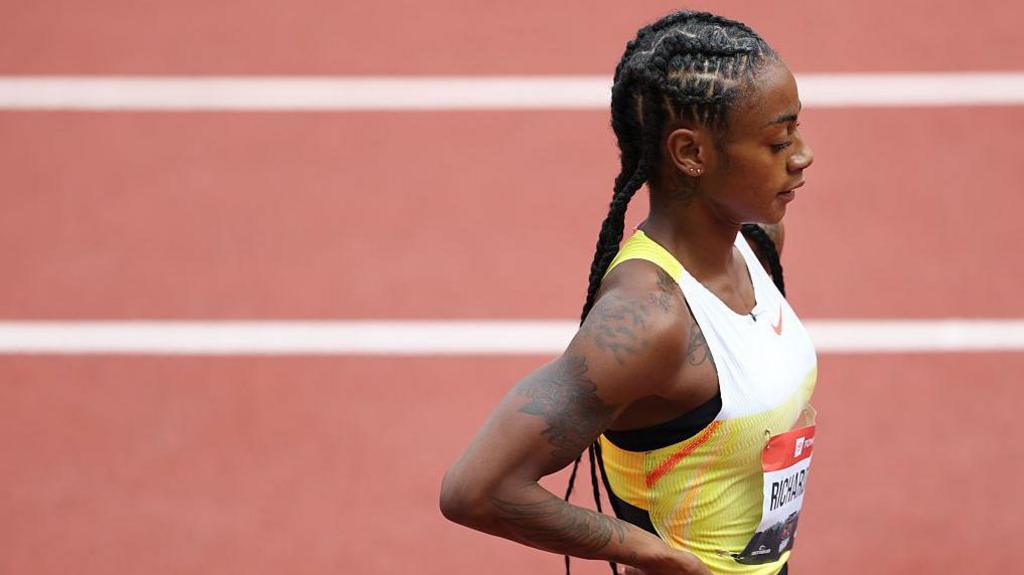Sha’Carri Richardson, a prominent American sprinter, recently faced disappointment at the US Track and Field Championships held in Oregon. Barely missing the 200m final, she finished an agonizing fourth in her heat with a time of 22.56 seconds. Her performance placed her just a hundredth of a second behind Madison Whyte, who claimed the last qualifying spot for the finals. This moment marked a significant setback for Richardson, especially considering her status as a defending champion and a silver medalist from the Paris 2024 Olympics.
As an intriguing juxtaposition to her athletic achievements, Richardson’s week concluded on a turbulent note. Just days prior to the championships, the 25-year-old sprinter was arrested in connection with a domestic violence incident. The altercation reportedly involved her boyfriend, Christian Coleman, who is also a distinguished athlete on the US team. Richardson was detained at Seattle-Tacoma International Airport following a confrontation that appeared to escalate dramatically, with police reports describing footage showing Coleman being shoved into a wall during the altercation.
After her arrest, Richardson was released the following day but her troubles compounded as she continued to navigate the aftermath of the incident. Coleman, for his part, opted not to press charges or engage in the investigation, a decision noted in the police documentation. Such complications add layers to Richardson’s public persona, which had garnered significant attention both for her prowess on the track and her vibrant, unapologetic personality.
Despite the upheaval in her personal life, Richardson managed to secure a spot in the upcoming World Championships this September in the 100m event, where she will compete as the defending champion. However, her dreams of participating in the 200m event are now dashed. As a high-profile athlete, her situation has drawn reactions from both her supporting fans and critics. Following her heat in Eugene, Richardson sidestepped questions from reporters, preferring instead to wish them a “blessed day,” which remains reflective of her often resilient public persona.
Additionally, USATF’s response to Richardson’s arrest was notably muted; the organization acknowledged being aware of the allegations yet chose not to comment further at this time, likely aiming to navigate the complexities tied to such sensitive matters involving athlete conduct and personal crises. Meanwhile, on the men’s side of the Championships, Christian Coleman finished satisfaction with a sixth-place position in the 200m final, solidifying the juxtaposition between triumph and failings amidst personal tribulations.
The implications of Richardson’s recent performance and subsequent arrest raise questions about the intersection of sports and personal conduct. Identified as a leading figure in athletics, Richardson’s experiences resonate with many fans who await her next steps both on and off the track. The journey ahead will not only test her athletic resolve but also her capacity to move beyond the distractions that have been thrust upon her in recent days.
Ultimately, Richardson’s case exemplifies the pressures faced by professional athletes—particularly women of color in competitive sports—as they navigate their careers amid personal challenges and public scrutiny. With the World Championships approaching, her fans remain hopeful that she can channel these experiences into renewed focus and determination in her forthcoming competitions. The evolving narrative of Richardson’s career emphasizes the multifaceted struggles that athletes may confront alongside their ambitions and the unforeseen obstacles that can reshape their paths.












